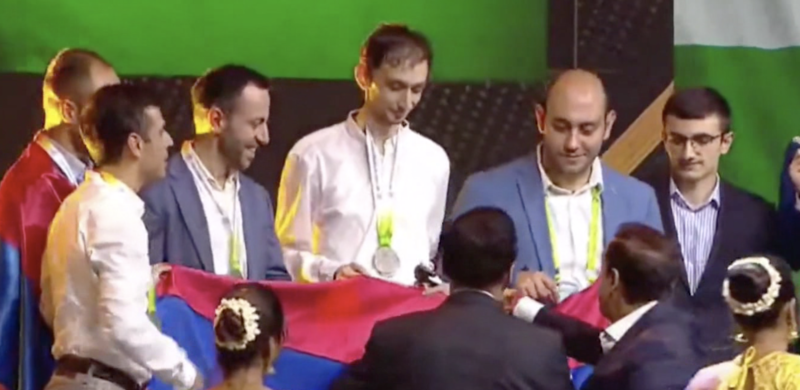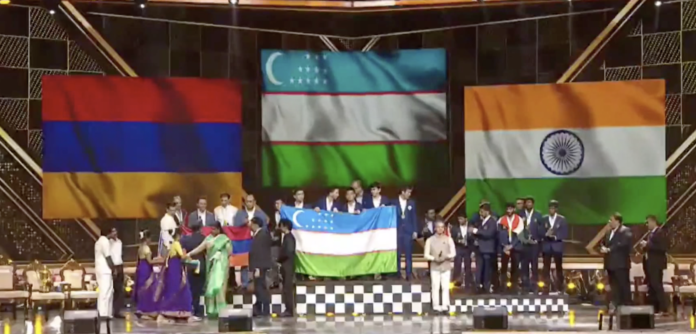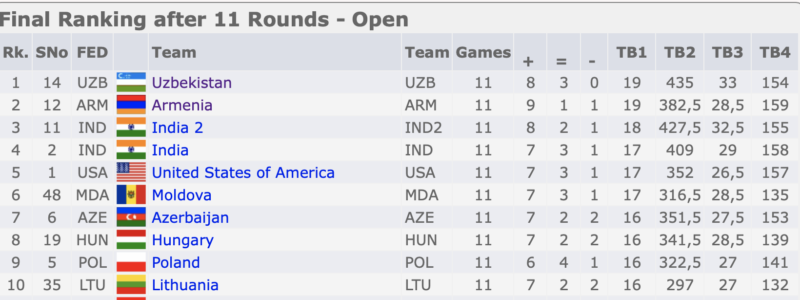WASHINGTON — Before the Chess Olympiad started in Chennai, India, on July 28, the Armenian grandmaster (GM) Tigran Petrossian, who happened to share the same name as the 9th world chess champion, wasn’t expecting the Armenian squad to end up in the top three teams and return to Yerevan with any medals.
“I am glad I was wrong,” he said in an interview with News.am. “Without Aronian, our squad is less strong. I am glad that we can still fight for medals,” added Petrossian.
Armenia won the silver in the Chess Olympiad with an equal number of points, while the Uzbek team won the gold.

Years ago, the Armenian chess squad won three Chess Olympiads: Torino, 2006; Dresden, 2008 and Istanbul, 2012. This international tournament is considered one of the most (if not the most) prestigious international chess competition in the world, and the Yerevan squad was performing exceptionally well. Then there was a pause in success stories in addition to Covid, because of which, the 2020 competition was held online on chess.com’s platforms. As a result, there was a setback. By early 2022, the Armenian team was ranked only 10th by FIDE (International Chess Federation), behind China, Hungary, Spain, and others.
Especially after star team member Levon Aronian, the top GM of Armenia, started playing for the US, the forecast seemed even less promising. However, the 2022 Olympiad in Chennai suddenly marked Armenia’s return to the very top of the most potent national teams.
In the first eight rounds, Armenia gained seven victories and one draw only, defeating Madagascar, Andorra, Egypt, Austria, England, and India’s first and second teams (three squads represented the hosts). The Armenian squad tied with the United States in round seven.











